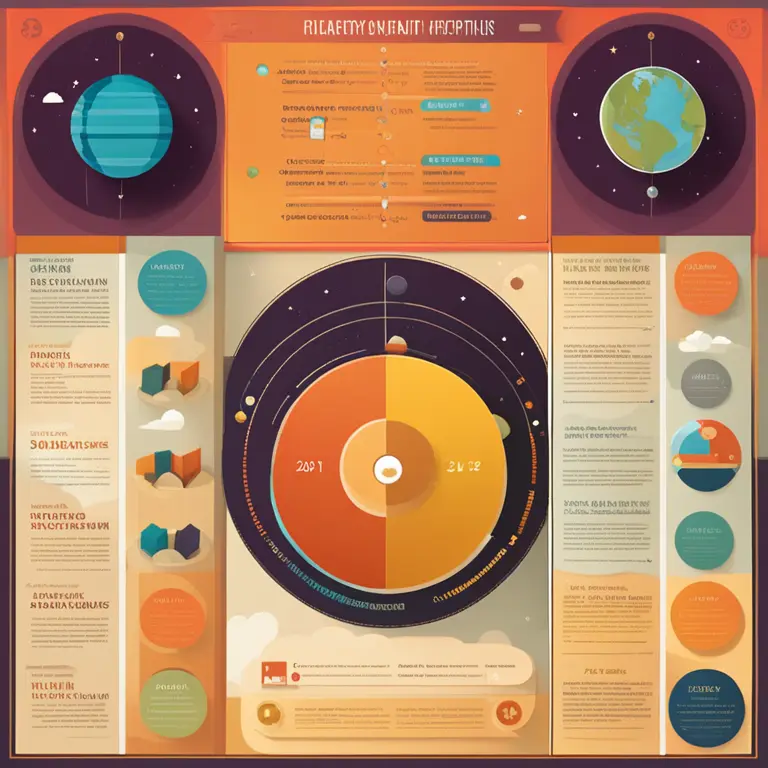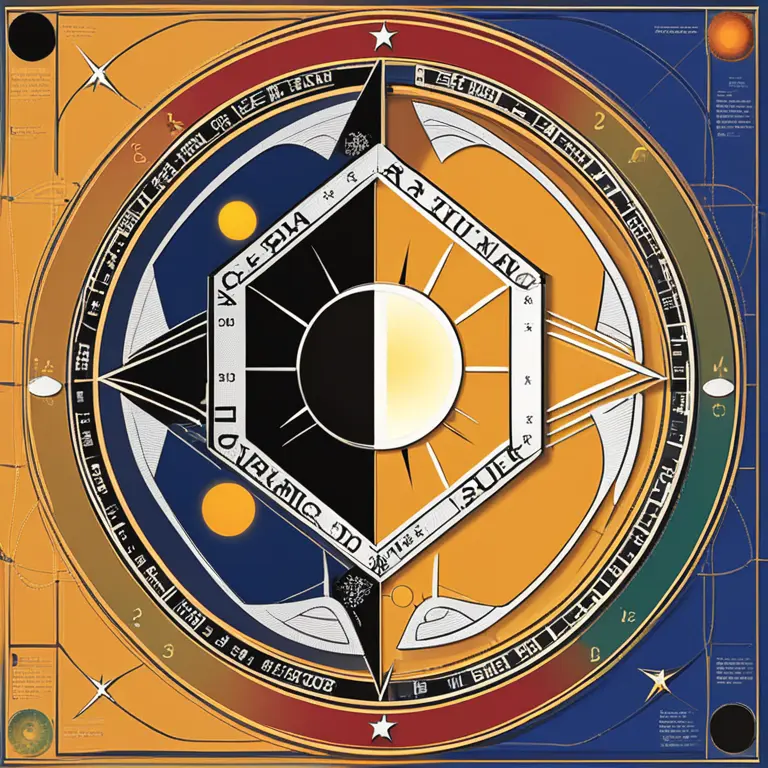
The World of Birth Chart Interpretation
Delve into the cosmic blueprint of your life with a comprehensive guide to birth chart interpretation.
article by Priya Deshmukh
Your Cosmic Blueprint
The birth chart, also known as a natal chart, is a celestial snapshot of the sky at the exact moment you were born. It is your personal cosmic blueprint, offering profound insights into your character, potentials, and life journey. More than just the position of the sun — your sun sign, that horoscope column staple — it includes the moon, planets, and the specific angles they form with one another, all set against the backdrop of the twelve astrological houses.

Assembling the Astrological Puzzle
Interpreting a birth chart begins with understanding the key components: planets, signs, houses, and aspects. Each planet represents a different facet of life, from the sun's core identity to the moon's emotional base. Zodiac signs modify these planetary energies, coloring them with distinctive traits. The houses then place these energies in various spheres of life, such as career, relationships, or personal growth. The aspects, or the angles planets make to one another, determine how these energies blend or clash.

Planetary Positions and You
When analyzing a birth chart, the positions of the planets in the signs and houses reveal individual tendencies and life themes. For instance, Mercury in Gemini in the third house could indicate a natural communicator, while Venus in Taurus in the second house may suggest a love for sensual pleasures and material comforts. Astrologers also take into account the current and future positions of planets (transits) to forecast opportunities and challenges.

The Significance of the Sun, Moon, and Ascendant
The Sun sign conveys your core essence, the Moon represents your inner emotional landscape, and the Ascendant, or rising sign, reflects the persona you project to the world. These three crucial components of the birth chart form the core of your personal astrological profile. For a more nuanced reading, the signs' elements (fire, earth, air, water) and modalities (cardinal, fixed, mutable) also play significant roles in shaping personality and life experiences.
Navigating Life's Transits and Progressions
Beyond the natal chart, astrologers look at transits and progressions to understand ongoing personal evolution. Transits involve current planetary movements that trigger aspects in the natal chart, while progressions are a technique where each day after birth symbolizes one year of life. Tracking these celestial shifts helps in anticipating timing for various life events and highlighting periods of growth or challenge.
Modern Astrology: The Evolving Practice
Astrology in 2024 and beyond continues to evolve, embracing technological advancements and contemporary psychological insights. From app-driven birth chart calculations to virtual consultations, accessibility to astrological services has never been easier. While traditional principles remain foundational, modern interpretations consider the diverse, dynamic nature of human experiences and socio-cultural factors shaping an individual's life.
Your Birth Chart: A Living Document
Remember, your birth chart is not static; it's a living document of your growth and potential. Whether you're embarking on a new career, seeking love, or pursuing personal development, understanding your birth chart can be an invaluable tool for navigating life's voyage. It's a cosmic counselor, offering guidance and perspective, while always reminding you of your free will to shape destiny.
Published: 1/22/2024
Modified: 1/22/2024
More predictions
Come back here soon to learn more about yourself and your future


Moon Phases and Astrological Practice
Delve into the mysterious influence of the moon's phases on astrological practice and how they may affect your life and decisions.


The Lunar Phases of the Moon Explained
Learn how the moon's phases affect us on Earth and influence astrological interpretations through their celestial dance.


The Lunar Cycle & Its Impact on Life
Discover how moon phases impact daily life, personal growth, and more in our guide to the lunar cycle's significance.